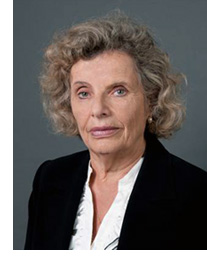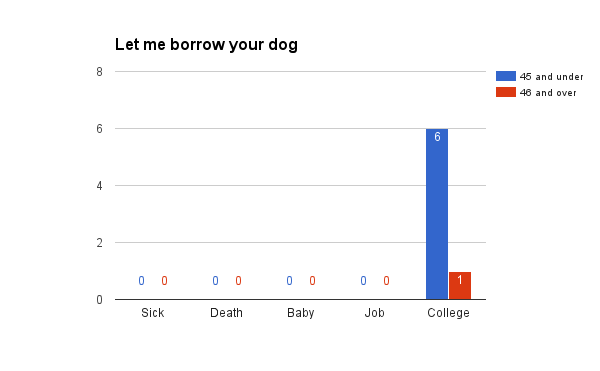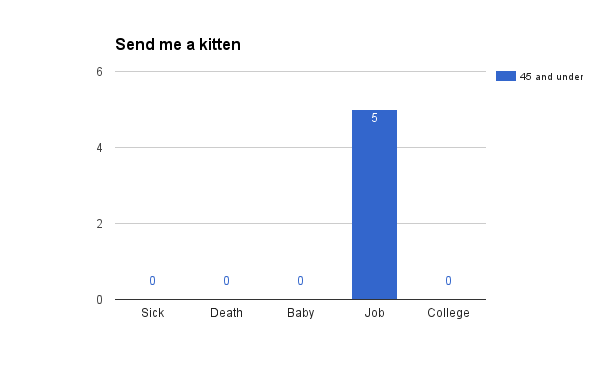There was a time when you were only known as the baby. Your parents and their families and anyone who knew about you spoke of you solely as the baby. They spoke with joy, certainly, and with anticipation and hope, but you were still just the baby. Depending on the year of your birth or how much confidence your parents had in blurry ultrasound images, they may not even have known if you were a boy or a girl, or if there were more than one of you in your mother’s belly. At some point during the pregnancy, your parents started compiling lists of possible names for the baby; two columns, one if it’s a girl, the other if it’s a boy. They listed names of moms and dads, aunts and uncles, best friends and movie stars, names that wouldn’t attract cruel teasing in the school yard one day, names that would go well with the family name, names that start with the same letter as your siblings’ first names, names that capture kindness, strength, or some other characteristic your parents wanted to see in you. And as the due date drew closer, the list got shorter. And eventually the moment came when they looked at you and they just knew what your name was going to be, and they whispered it with a smile, hoping you would like it. For the very first time, you were called by your name. You were no longer just the baby, you were somebody.
There is power in a name. It affirms us in our individuality and our sacred personhood.
My mother was born in a village where most families had been around for generations. Her parents and her siblings still lived there when I was little, and we would go to visit them just about every Sunday afternoon. They had a peculiar custom in that village, perhaps in surrounding villages as well, I don’t know, I was little. I noticed that when a grown-up saw a child on the street or at a store, and the child wasn’t in the company of an adult, they would sometimes inquire who that child was, only they didn’t ask, “What’s your name?” but, “To whom do you belong?” They had another curious custom. Grown-ups would refer to each other by their last name first. My grandmother’s name was Elisabeth Simon, and everybody called her Lisa, but when her name came up in conversation, people referred to her as Simone Lisa; my grandfather was Simone Georg, my uncle, Simone Hans, my mother, Simone Anneliese. Last names came first, I imagine, because it was very important to know to which family one belonged.
I must have been born with a strong independent streak. I was maybe four years old, when someone asked me, in my mom’s hometown, somewhere on the sidewalk between the butcher’s shop and the bakery, “To whom do you belong?” I didn’t like the question. I remember putting my foot down, declaring, “I belong to nobody. I am Thomas.” I remember that moment vividly, and how strongly I felt about being recognized as a person and not just as a member of a family, or worse, as somebody’s property. There is power in a name.
When I was a teenager, I went to catechism class. I had been baptized as an infant, and in preparation for our confirmation, we learned the meaning of our baptism and how to live as followers of Jesus and people of God. One of the catechisms we studied, the Heidelberg Catechism, begins with the question, “What is your only comfort, in life and in death?” That’s not the kind of question you’d ask a fourteen-year-old, is it? We weren’t expected to come up with our own answers, though, we were encouraged to know the church’s answer to that question and to grow into it.
Q: What is your only comfort, in life and in death?
A: That I belong – body and soul, in life and in death – not to myself but to my faithful Savior, Jesus Christ.[1]
I was fourteen years old. I believed that I belonged to nobody but myself – and the church taught me to find comfort in the thought that I did indeed not belong to myself, but to Christ. The church encouraged me to question my most sacred assumptions: my independence, my autonomy, and my self-centeredness. I learned to repeat the answer, that I belong – body and soul, in life and in death – not to myself but to my faithful Savior, Jesus Christ. I learned to repeat the answer, but I didn’t believe it. I wanted to be myself and belong to myself.
At a youth retreat, I was introduced to the passage from Isaiah where the prophet says,
Now thus says the Lord, he who created you, O Jacob, he who formed you, O Israel: Do not fear, for I have redeemed you; I have called you by name, you are mine.When you pass through the waters, I will be with you; and through the rivers, they shall not overwhelm you; when you walk through fire you shall not be burned, and the flame shall not consume you.
That I liked. I liked the promise of God’s presence. I liked it, because life could be overwhelming at times and frightening, and I liked the thought that my name was written in the palm of God’s hand. What I didn’t hear, not really, was the part where God says, “I have redeemed you, I have called you by name, you are mine.”
Today I know that my adolescent rejection of any authority but my own wasn’t the whole story. I was a child of the times, and it took me years to see how much my thoughts and actions had been shaped by my need to fit in and conform to all sorts of stories. I wasn’t nearly as free as I thought. Today I know no greater comfort than that Christ Jesus has made me his own, and I know no greater freedom.[2] All I want is to live as a child of God.
When Jesus was about thirty years old, he came to the Jordan river, and he heard John’s proclamation of God’s coming judgment and a baptism of repentance for the forgiveness of sins. And when all the people were baptized, Jesus was washed in the river along with all of them, or perhaps I should say, along with all of us. The river of repentance is where we need to be, and Jesus gets in the water with us. He doesn’t need to be baptized, he wants to be baptized with us. We step into the river praying that our sins and regrets, our guilt and shame and fear would be washed away, and he steps in to collect all the nasty flotsam that keeps life from flourishing and to take care of it for good. He steps into the river in deep solidarity with us to redeem us, to forgive and to heal, to restore and to make whole.
Jesus was praying when the heaven was opened and the Holy Spirit descended upon him, and a voice came from heaven, “You are my Son, the Beloved, with you I am well pleased.” That is all the heavenly voice declared. No second sentence opening a whole new paragraph, “Now listen, Son, this is what I need you to do.” No parental reminder, “Now don’t you forget that, Son, or I won’t be pleased.” Only these words: You are my Son, the Beloved, with you I am well pleased.
In Luke’s gospel, this scene by the river is followed by a long genealogy, name after name, generation after generation, layer upon layer of family history that define who Jesus is – except that Jesus’ true identity, his true name was spoken by a heavenly voice by the river. Perhaps Luke is suggesting that the defining power in this family tree works the other way round. The long list of names going back all the way to Adam doesn’t just tell us Jesus’ family background; it helps us recognize that Jesus represents all of humanity, all the children of Adam and Eve.
The river of repentance and forgiveness is where we need to be washed, and he joins us so we each might know who and whose we truly are: God’s beloved children, God’s delight. This relationship defines us more deeply than layers and layers of ancestry and history; and it does so because we’re not the ones who establish it. Christ comes to us with profound solidarity and compassion. God’s love for us is the one relationship in life we can’t screw up. We can deny it, sure, we can ignore it, neglect it, forget it, and run away from it, but we cannot destroy it. Nothing we do or refuse to do will change who we are, God’s own and God’s beloved. Sometimes we forget. We forget because we’re busy making a name for ourselves. We forget because life has convinced us that we are not worthy of love or too insignificant to even be noticed. We forget because pain and fear and shame bury our sense of self as God’s own. What are we to do about that forgetfulness?
Martin Luther often struggled with a deep sense of unworthiness, and when he became discouraged he would say, “But I have been baptized.” He even wrote it on a slip of paper he pinned to the wall above his desk, “I have been baptized.” When the waves of conflict surged high, around him and within, the tempter would say to him, “Martin, you’re a hopeless, stubborn, prideful, ignorant, arrogant, no-good sinner.” And Luther would reply, “True enough, devil, but I have been baptized.”
I like to imagine that many a morning, perhaps every morning when he washed his face Luther paused and whispered, water dripping from his nose and brow, “I am baptized. Christ has made me his own. I belong to God.” How about that holy habit to help you remember who you are? In the morning, when you step into the shower, and the water runs over your head and shoulders, pause for a moment to remember your true name and say it, “I am God’s beloved child and God delights in me.” Baptized into Christ, we know and remember who we are.
Do not fear, for I am with you, says the Lord. I will bring your offspring from the east, and from the west I will gather you. I will say to the north, Give them up, and to the south, Do not withhold. Bring my sons from far away and my daughters from the end of the earth — everyone who is called by my name, whom I created for my glory, whom I formed and made.
[1] http://www.ucc.org/beliefs/heidelberg-catechism.html
[2] Philippians 3:12





















